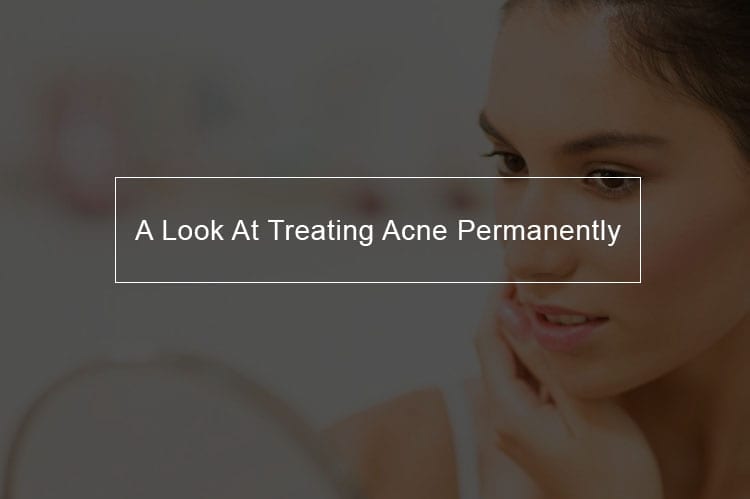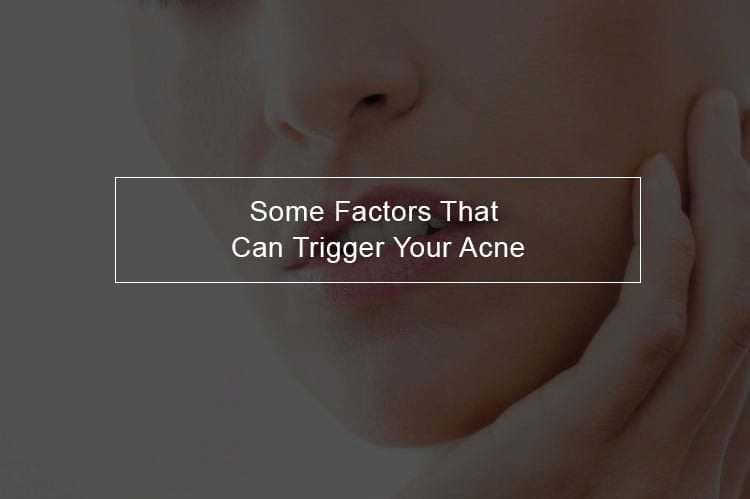
Acne is a skin disease that can affect both men and women. While acne is most common during puberty and adolescence if you think that you’ve passed your teens and can now look forward to a pimple-free life, think again. Acne can affect people of all ages. Blame it on hormonal changes, especially during puberty and pregnancy, medications containing corticosteroids, oral contraceptive pills, a diet high in refined sugars, or stress.
What is acne and what can be done about it?
Learning how to handle acne
Your skin has pores that are connected to the oil glands under the epidermis through follicles. These glands are responsible for making sebum, an oily substance. When they get clogged, acne breaks out. The major reason acne happens more during puberty or at the time of hormonal changes, is because of the excess secretion of oil.
Why isn't there a way to treat acne immediately or permanently?
One can wonder, with all the technological advances we have made why haven’t we found a way of removing acne for good. It is hard to get rid of acne because it results from a complicated process involving a clogged pore, oil, bacterial growth, and inflammation, and genetics and hormones also influence it. An injection of cortisone directly into the pimple decreases inflammation in a day or two, and prescription medications can get long-lasting results for cystic or severe acne. The best way to prevent acne is by using a combination of ingredients that address each step in the breakout process, for example, using salicylic acid to disrupt the plug, benzoyl peroxide for protection from bacteria, and sulfur for its anti-inflammatory effect.
What causes acne or pimples?
Sometimes, acne is simply a result of a reaction to a cosmetic product. And yes your diet could be the cause too. There is also a common assumption that not hydrating enough can cause acne. While all this can worsen the acne-problem, there are several other factors in play too.
Genetics
If your parents had acne, it is most likely that you too will get it sooner or later in the course of your life.
Hormonal fluctuations
Sex hormones known as androgens increase in teens during puberty and trigger the follicular glands to enlarge and produce more sebum leading to acne. Some medical conditions can also cause a high-androgen state. Hormone changes during pregnancy and taking oral contraceptives can also affect sebum generation.
Drugs
Certain meds are known to worsen acne like steroids and epilepsy medication. They can cause the overproduction of sebum, which when trapped can clog pores.
Smoking
Smoking is harmful to your health and also bad for the skin. With every puff, there is a decline in oxygen supply to the skin. The smoke also irritates the skin making it make more oil that result in breakouts. Apart from breakouts on the face, the collapse of collagen and elastin in the skin might open pores.
I cleanse my face several times a day, why do I still get acne?
It's best to use a face wash to clean your face about twice a day. Using harsh cleansers and cleaning too often can strip it of its natural oils, making it drier and more likely to break out.While you’re trying your best to avoid acne breakouts by following a good skin care regime, using over-the-counter acne gels and creams, and yet those pimples manage to sneak up somehow, you might want to take a better look at your lifestyle and daily habits. Here are some examples that might be triggering your acne.

Touching your face frequently
While touching your face might or might not trigger acne, it sure does make it worse. Every day, our hands come into contact with germs, bacteria, and dirt, which can easily be transferred onto the face due to constant touching. This habit can cause breakouts and make pimples worse. Keep your hands off your face.
An unhealthy diet
A balanced diet of essential minerals and nutrients is not only good for your health but also your skin. Eating junk food, carbs and missing meals can have bad effects on the skin resulting in pimples and breakouts. While it’s okay to indulge in junk food occasionally, try including fruits and vegetables to help regulate your diet. Don't forget to take at least eight to ten glasses of water every day.
Reduce stress
Another major reason for acne is stress. When one is under a lot of pressure, the body produces stress hormones that spur the oil glands into producing more testosterone resulting in increased oil production and clogged pores. Try and relax more and worry less.
Not using the right hair products
Hair products regularly used, from your shampoo, conditioner to sprays, gels, etc. contain sulfates, silicones, and other chemical agents that can be harmful to the skin and cause acne. Try to keep these hair products from coming into contact with your skin. After using these products, wash your face, neck and chest area to ensure no residue is left.
Not washing your face well
It is critical to use good, medicated cleansers at least twice a day, but harsh cleansers and washing too often can make acne worse and leave the face drier. Leaving makeup on or not cleaning up after sweating, can also result in an acne breakout. Clean your skin with an astringent or toner to wash off the oil from your skin from time to time. Ensure that any items that come into contact with your face, like towels, makeup brushes or sponges, are washed regularly. This guarantees that all the dirt built up gets rinsed out, and doesn't get transferred back to your face. Use different towels for your hair and face.
Not changing the pillowcases
Dirty pillowcases and bed sheets can also cause acne breakouts. Dirt on these sheets and pillowcases can settle on the skin and end up clogging pores. The cleaner your bedding is, the happier your skin will be.
Not cleaning up after workouts
Sweating loosens grime and makeup, and if it is not removed well, it might clog the pores resulting in breakouts. Never skip washing up after an intense or sweaty workout session. A splash of water will not do; instead, use a mild face wash.
Using the wrong skin care products
Using products that are not suited for your skin type can harm your skin. Besides, if you’re someone who changes products often, note that this habit can cause a lot of harm to your skin. The different ingredients in each new product can cause irritation, pimples, and breakouts. Stick to a singular brand once you’ve spotted something that suits your skin. Ensure your skin gets to breathe. Avoid using makeup to cover up acne. If you can’t do without makeup, opt for water-based cosmetics instead. Always look for natural products because chemicals can cause result in acne.
Popping your pimples
Squirming with a pimple can cause irritation, pain, and discomfort. In its active stage, acne can be bothersome, with pus, etc. Touching or poking leads to inflammation and will leave marks or scars, known as post-inflammatory hyperpigmentation. If you breakout once in a while, use a retinoid or an antibiotic cream to dry the pimples. Certain over the counter topical treatments can make your skin photosensitive. So ensure that you use a sunscreen when you’re using a retinoid cream for acne.
Natural ways to prevent acne breakouts
Reduce the caffeine, sugar and refined carbohydrates in your diet. They can activate the hormones that encourage your sebaceous glands to generate more oil, which in turn adds to acne. Add fresh fruit and green leafy vegetables. Make them into a salad or blend them into a smoothie.
- Pomegranate: Filled with antioxidants that prevent clogging, this fruit can give you clear skin. Eat a bowlful of pomegranate seeds or squeeze them into some juice to open up those pores and let your skin breathe.
- Papaya: This fruit has enzymes that can help reinvigorate your skin. You can have a few slices of raw papaya for breakfast or as a quick snack to help fix the damage done to your skin by dust and pollution.
- Strawberries: These are high in salicylic acid which helps keep the skin clean making them a staple ingredient in many facial washes.
- Citrus fruits: They are rich sources of antioxidants that assist in detoxifying the skin from within by reducing excessive estrogen. Moreover, the vitamin C content also helps keep oil and grime at bay, thereby preventing acne at the outset.
Increase the intake of antioxidant rich foods such as green tea, aloe vera juice, etc. Cut down on metabolism-busting factors like deep fried or starchy foods, yeast products, sweets, alcohol, and caffeine. You could substitute white bread for whole-wheat whenever possible. Drink a lot of water, about 8-10 glasses daily, so that your body is well hydrated and the toxins are flushed out.




